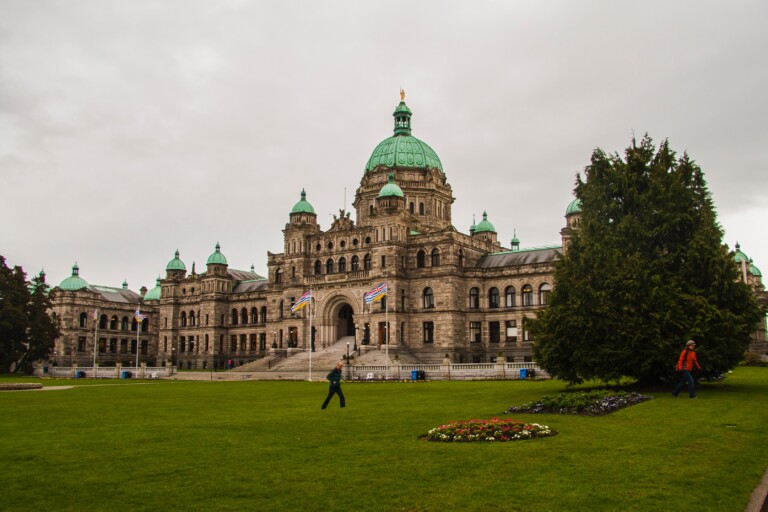
Like everyone else, once we have the social distancing on lock, there are a number of financial issues that come up. The three most frequent questions that have come up in the last few days are as follows:
- How does the strata corporation pay for unexpected or large expenses like insurance premiums?
- Can we cancel work that we planned to do and refund the special levy?
- Will there be relief for owners from the payment of strata fees?
Unlike a bank or other commercial enterprise, a strata corporation is a not for profit. As such, it does not have credit facilities available (i.e. line of credit) to support the strata corporation when cash-flow is tight. The strata corporation’s sole source of funding is from its owners, by way of strata fees or special levies. To run the complex, the strata corporation has its operating fund, contingency reserve fund (“CRF”) and special levy funds (if any) to pay for all of its expenses. All these funds, however, can only be accessed in accordance with the provisions of the Strata Property Act (“SPA”).
APPROVING UNEXPECTED OR LARGE EXPENSES
When it rains, it pours. The COVID-19 pandemic hit while we are also in a very hard insurance market that has brought in significant increases in premiums and deductibles. Many strata corporation’s budgets were approved before anyone became aware of the hard market. Lots of those strata corporations were in the process of calling AGMs and SGMs to address the situation. Normally, our advice would be to call a SGM to approve a resolution by ¾ vote to fund the increase by special levy or CRF expenditure. However, with social distancing requirements and gatherings of 50 or more people banned, that makes things difficult.
At this time, if the strata corporation is cash strapped, there are two ways to deal with this: reduce spending or increase cash flow. To reduce spending, there are a few options:
- Talk to vendors and service providers to see if there is some flexibility to pay bills late or on a payment plan;
- BC Hydro has established a COVID-19 Customer Assistance Program which allows a strata corporation to defer payments or arrange for a flexible payment plan with no penalty;
- Talk to the strata corporation’s accountant to see if the strata corporation qualifies for the Federal Government Temporary Wage Subsidy The program allows a non-profit strata corporation with employees the ability to reduce their current remittance of federal, provincial, or territorial income tax that they send to the CRA by the amount of the subsidy. The amount of the subsidy is 10% of the remuneration you pay between March 18, 2020 and June 20, 2020, up to $1,375 per employee and to a maximum of $25,000 total per employer; and
If the above measures don’t free up enough cash in the operating budget to pay the increased insurance premium, for example, then the funds will have to come out of the CRF or by a special levy. That will require a general meeting. For information about holding general meetings during the COVID-19 pandemic, see the article here and the resources by CHOA here. However, keep in mind that section 98(3) of the SPA can be of assistance. It will allow the strata council to spend money from the CRF without a ¾ vote if: “an immediate expenditure is necessary to ensure safety or prevent significant loss or damage”. If the expenditure meets the s. 98(3) criteria, the strata council will need to approve it at a duly convened strata council meeting, report the decision in the minutes, and spend only the minimum necessary to ensure safety or prevent significant loss of value. There are not a lot of cases that can use this provision of the SPA. The strata council may want to consider getting legal advice before using this provision for any large expenditure.
CANCELLING WORK AND REFUNDING SPECIAL LEVIES
When the COVID-19 pandemic was announced, some strata corporations were in the process of undertaking large repair and maintenance projects. With some, it may not be possible to defer projects because the work has to be done for the safety of the owners. In other situations, the contract is already signed and the parties committed. Unless the contractor agrees to defer, cancel, or reduce the scope of work of a project, we would not suggest doing anything unilaterally without first getting legal advice. Cancelling or deferring without agreement could lead to a claim for damages by the contractor.
There are, however, some strata corporations that are in the unique position of having approved the special levy, but not yet hired a contractor to do the work. In that case, section 108(5) of the SPA does allow the strata corporation to refund the special levy if for any reason the money is not fully used for the purpose set out in the resolution. That being said, we recommend getting legal advice to determine if a contract has been entered into. Many have the misconception that the contract has to be in writing and signed by both parties for it to be enforceable. That is not correct. Therefore, if there have been any negotiations and finalization of the price and scope of work, there may be an enforceable contract that may not be terminated unilaterally without inviting a claim for damages by the contractor.
DEFERRAL OF STRATA FEES
To date, the BC government has not announced any relief in the way of a blanket deferral or reduction of strata fees. This, however, makes sense. Strata corporations have expenses that they have to pay. The only reliable source of funds is strata fees or a special levy that has been approved. While some strata corporations receive revenue from fines, renting parking stalls to owners or renting roof areas to telecommunications companies, those funds tend to represent only a small portion of the strata corporation’s actual expenses. Strata fees ensure that the common property lights stay on and water continues to flow. Strata fees also fund the salaries for the strata corporation’s cleaners and caretakers who are working hard to clean and sanitize heavily-trafficked common areas and touchpoints, such as door handles, elevator buttons, staircase railings, and other common property items. Strata fees pay for the monthly costs of property managers to operate the strata corporation, insurance premiums for sudden events and catastrophes, and emergency repairs to deal with water leaks, fires, and failed common property systems, and routine maintenance of elevators and HVAC systems. In short, even if we wanted to have a blanket deferral of strata fees, it is not possible unless all these creditors defer receiving payment.
In addition, standard bylaw 1 states an owner must pay strata fees on or before the first day of the month to which the strata fees relate. Must is an obligation. It is not optional. Also, the Court has held that even though the owner may be going through difficult financial times, the strata corporation is not obligated to reduce strata fees or absorb legal fees incurred in debt collection proceedings to accommodate the owner’s unfortunate circumstances (The Owners, Strata Plan NW57 v. Lambert [2019] BCSC 64 [“Lambert”], para 48). Doing so would undermine the ability of the strata council to fairly deal with other owners who are paying their obligations and requiring them to shoulder the burden of owners who are not paying strata fees as they become payable (Lambert, para. 49).
All that said, owners will be asking strata councils to reduce or stop paying their strata fees. While we need to come together and be compassionate, the strata council must also consider the best interests of all the owners. Ultimately, the strata corporation needs to pay its bills. No one knows how long this will last. If China is any indication, we are looking at two months before things start back up again, and even then, it will be weeks after that before everyone is back at it. Also, they are talking about there being a second wave, which will require social distancing measures again. Also, the courts are closed. We can file things to stop limitation periods, but they are closed for hearings unless it is urgent. As a result, even if the strata corporation would like to try to enforce, it will be at least a few months before any significant steps can be taken.
The strata council will need to hear from each owner and consider their particular circumstances and encourage them to defer payment of other things before strata fees are not paid. Banks are giving relief on mortgages, you can defer or make a payment plan with BC Hydro, there is talk about credit cards also allowing for deferred payments, EI is being made available to those that do not normally qualify, and $1,000 from the province for those that collect EI. As a result, where possible, owners need to find ways other than not paying their strata fees. A strata corporation, unlike a bank or lender or other creditor, is a not for profit organization. Until there is relief announced that allows strata corporations to defer payments to their creditors, they still have to pay their bills from the strata fees they collect.
Consider giving owners extra time to be a little late while we all settle on this new normal and the help announced by the federal and provincial governments start to flow. However, owners need to understand that there is no other source of funds for the strata corporation to pay its bills. With insurance premiums and deductibles as high as they are, many strata corporations may not have enough in the CRF to pay for those types of emergencies especially if they have an operating fund that often runs on a fairly tight budget. For those that have a fairly healthy CRF, it may be possible. But again, if we are on this trajectory for months, a blanket ability to defer strata fees, in particular, could be devastating to the entire strata corporation.
Please contact any of the Strata Property Group lawyers at Clark Wilson LLP for further information.




